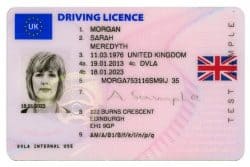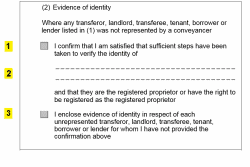One of the most important parts of many legal transactions is ensuring that you are who you say that you are and that any documents you submit are authentic. Without this verification process, it is possible the transaction will be unable to proceed. There are strict rules about who can do this, which means you need to familiarise yourself with an admittedly fairly long list of possible verifiers.
Why does ID need to be verified?
It is a legal requirement for solicitors to verify their clients’ IDs and documents. The Money Laundering Regulations 2003 establish conveyancing as a “relevant business” for which solicitors must carry out ID verification of clients. This is meant as a protection against identity fraud, money laundering and other crimes. In the case of conveyancing, it is likely that the Land Registry will ask for your documents and verification.
How can ID be verified?
Proof of identification is generally dependent on government-issued photographic IDs such as passports and driving licenses, which then need to be certified in writing by an accepted verifier. Other important documents may include utility bills, council tax bills or bank statements. Specific procedures, such as whether you can upload documents online or need to provide physical copies, may vary depending on the firm or transaction, but you will need to provide documents in some form.
These documents will be accompanied by what is known as an ID1 form. You will need to fill in information such as your full legal name and a history of your previous addresses. You may also need to provide information about the house you intend to buy. If your documents are in another language, you will need a certified translation.
Who can verify identity documents?
When it comes to verifying identity documents generally, the list of possible verifiers is a long one, including many people in professional and/or public roles. Some possible verifiers include:
. Doctors.
. Dentists.
. Teachers.
. Police officers.
. Social workers.
. Post Office officials.
. Job centre employees.
. Religious ministers.
. Military officers.
. Accountants.
. Bank and building society officials.
. FCA regulated financial advisers.
. FCA regulated financial services intermediaries (insurance brokers and stockbrokers, for example).
. People on the FCA authorised persons list.
. Members of a financial services professional body.
. Local or county councillor.
. Government official.
. Embassy/consulate/High Commission officer from issuing country.
. Commissioner of Oaths.
. Public notary.
It is perhaps not surprising that legal professionals are also included on this list, from paralegals to judges and justices of the peace. Having a solicitor verify your identity may be the easiest path to take in situations where you are already instructing solicitors regarding your conveyancing needs. Ascot solicitors such as those at https://www.parachutelaw.co.uk/ Parachute Law may, for a fee, offer to verify your documents and assist with completing the ID1.
Who cannot verify identity documents?
Even if someone is on the list of authorised professions for verifying IDs, that does not necessarily mean that they can verify your documents in particular. Your verifier must not be a relative or someone in a close personal relationship with you or other key parties in the legal proceedings. You must not share an address.
There is a long list of potential verifiers if you need your ID and documents certified, but the most obvious solution is to go directly to a solicitor. It may cost you extra, but it is essential if you want to proceed with conveyancing. Verifying IDs is a legal requirement for the Land Registry, among other government departments. Following the guidance and the process, whilst adding time and money to the proceedings, does not have to be complicated.


